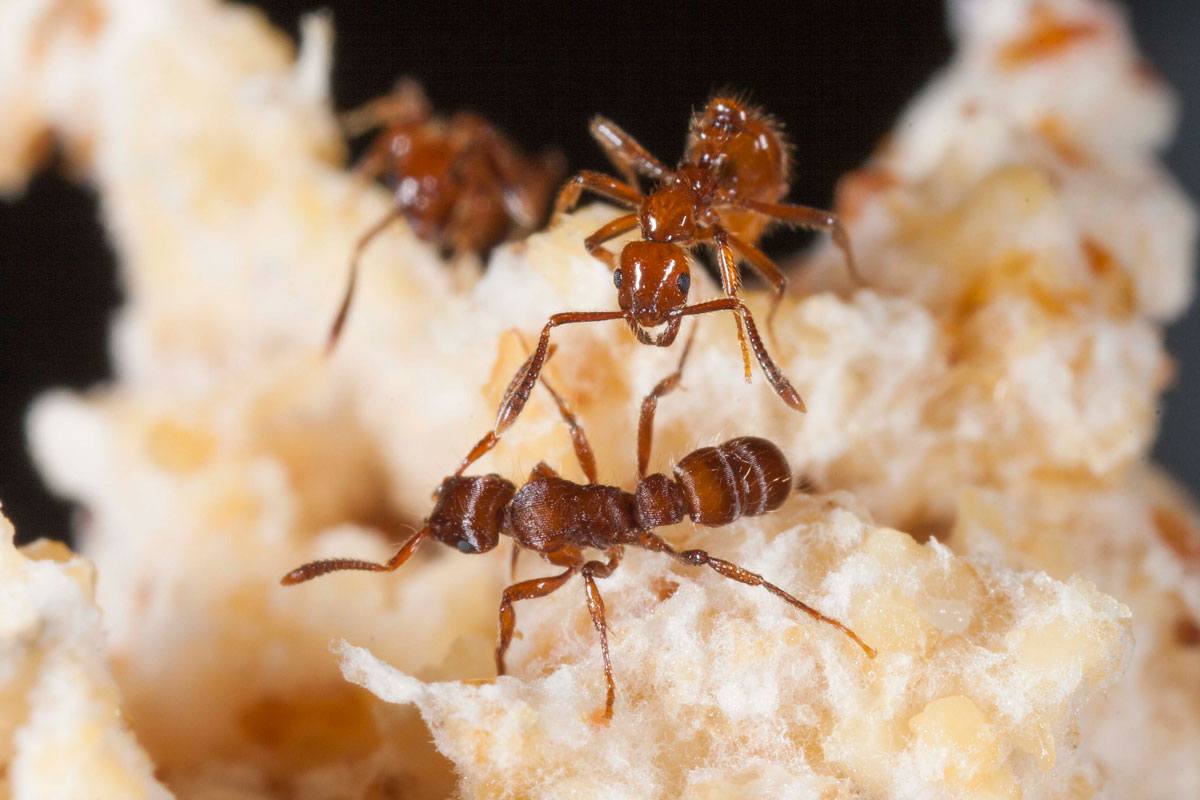Parasite Ants Drafted as Mercenaries

Farmer ants can recruit parasites to battle for them, much like medieval cities sometimes kept expensive contingents of mercenary soldiers to ward off invaders, researchers say.
The finding, illustrated in a video of the mercenary ants, highlights that parasites might not always be a bad thing, underscoring the complex relationships between species in nature, investigators added.
Scientists investigated ants in Panama named Sericomyrmex, which raise fungus in gardens. The farmer ants are regularly beset by parasitic ants named Megalomyrmex. Queens of Megalomyrmex stealthily enter and colonize the gardens of Sericomyrmex and can feed on their offspring and their fungus for years. They also clip the wings of the virgin queens of the farmers, hampering the spread of Sericomyrmex colonies. [Mind Control: Close-Up Photos of Zombie Ants]
Ant soldiers
Evolutionary biologist Rachelle Adams at the University of Copenhagen had studied Megalomyrmex for more than a decade when she noticed they were remarkably common compared with other parasitic species, at times making up than 80 percent of some host populations.
"This prompted me to question why this might be, leading me to focus my collecting efforts on this particular system," Adams said.
The researchers focused on the potent venom produced by Megalomyrmex. To see what effects it had, Adams and her colleagues exposed these parasites to ants named Gnamptogenys, which can usurp the gardens of the farmer ants, Sericomyrmex, and quickly devastate their nests.
Sign up for the Live Science daily newsletter now
Get the world’s most fascinating discoveries delivered straight to your inbox.
The results surprised the scientists. The farmer ants hid while the parasites rose to confront the invading Gnamptogenysants, killing them better than the bites of the farmers could.
The parasites acted as soldiers for their hosts, since the raiders would harm the parasites' interests — the hosts that the parasites want to exploit. This benefit helps explain why these parasites are so common among some of the farmer ant populations.
"The guest ants are the better of two evils," Adams told LiveScience. "If the raiders were not a threat, then the guest ants would only be a burden to the host colony."
Indeed, experiments revealed that when it came to marshaling forces to assault farmers, scouts of the raiders preferred colonies that did not smell of the parasites.
"If we studied just the farming ants and the guest ants, we would have missed this important discovery and concluded the guest ants are simply parasites," Adams said. The researchers compared this tradeoff to sickle cell anemia, a hereditary blood disease that can cut lives short but also gives people resistance against malaria.
Attacking the sister ants
The research team also discovered the chemical warfare Megalomyrmex conducts works in an unexpected way.
"The raider ants attacked by the Megalomyrmex were often attacked by their own nest mates," Adams said. "This suggests that the guest ant venom disrupts the recognition system of the raiders, causing sisters to attack and kill one another."
Symbiotic relationships between species "are more complex than what we might first expect," Adams said. "We should keep in mind that interactions with additional species may create unexpected complexity that may change the way we view the symbionts."
The scientists detailed their findings online today (Sept. 9) in the journal Proceedings of the National Academy of Sciences.
Follow LiveScience @livescience, Facebook & Google+. Original article on LiveScience.










